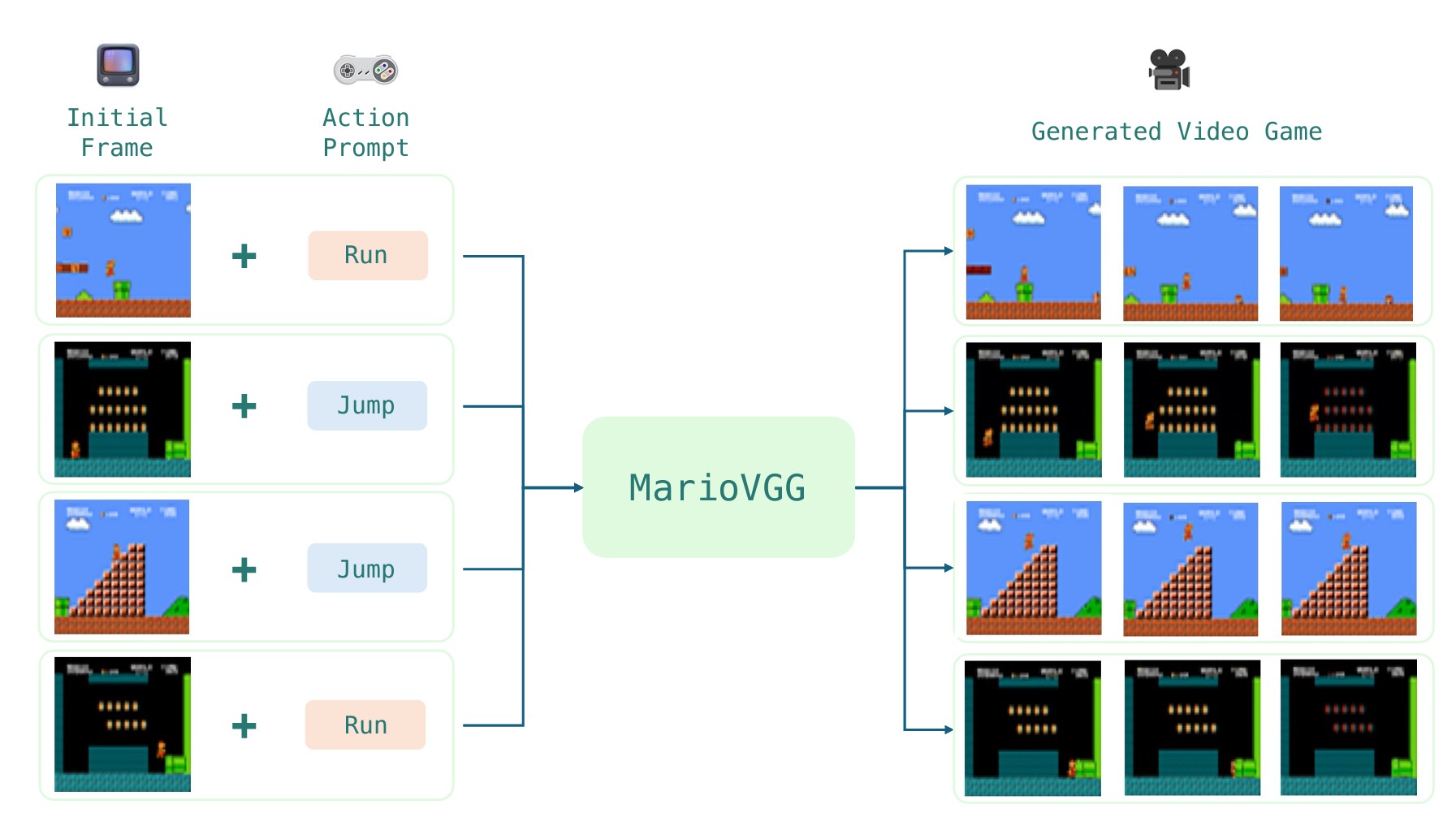
In a groundbreaking development, researchers have created an AI model called MarioVGG that can generate video simulations of the classic game Super Mario Bros. based on user inputs. This innovative approach marks a significant step towards AI-driven game generation and could potentially revolutionize the gaming industry.
How MarioVGG Works
The MarioVGG model was trained on a vast dataset of Super Mario Bros. gameplay, comprising 280 levels worth of input and image data. By preprocessing this data into 35-frame chunks, the AI learned to associate specific inputs with their corresponding visual outcomes.
To streamline the learning process, researchers focused on two primary inputs: "run right" and "run right and jump." This simplification allowed the model to grasp the basic mechanics of Mario's movement without becoming overwhelmed by complex inputs.
The Training Process
The AI underwent an intensive 48-hour training period using a single RTX 4090 graphics card. Following this, the model employed convolution and denoising techniques to generate new video frames from a static starting image and text input.
Current Limitations and Future Potential
While the results are impressive at first glance, closer inspection reveals numerous glitches and inconsistencies in the generated footage. Additionally, the model's current speed is too slow for real-time gameplay.
Despite these limitations, MarioVGG demonstrates a remarkable ability to infer physics and gameplay dynamics solely from video and input data. Researchers view this as a promising first step towards creating a reliable and controllable video game generator.
Implications for the Gaming Industry
The development of AI models like MarioVGG could have far-reaching implications for game development. In the future, such technologies might be capable of replacing traditional game engines and development processes entirely, potentially streamlining game creation and opening up new possibilities for procedurally generated content.
As AI continues to advance, we may see increasingly sophisticated models capable of simulating complex game environments and mechanics. While MarioVGG is still in its early stages, it offers a glimpse into the potential future of AI-driven game development and generation.